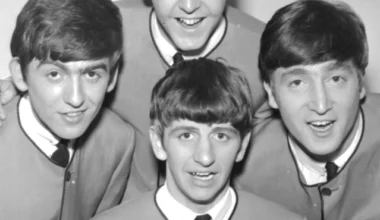Maintaining equilibrium in the power dynamics of a rock band is an arduous task. For the first few years, everything might go according to plan. But as soon as someone claims they are more powerful than the other musicians, it just takes a few more missteps for everyone to walk away with damaged egos and hurt feelings. With Roger Waters at the helm, Pink Floyd at least knew what life was like after death. David Gilmour pointed to The Wall and The Final Cut as the turning point in it all.
However, Pink Floyd was already on the verge of disintegrating when Waters decided to take charge. It was obvious that their collaboration with Syd Barrett had come to an end. If they were going to accomplish anything, it would typically come from Waters penning his more complex interpretations of rock and roll. These interpretations often involved a somber assessment of society.
After the release of Dark Side of the Moon, people began to pay attention, even though it took some time. While most progressive rock bands would consider themselves lucky to occasionally peak at the bottom of the charts, an album that remained in the top spots for almost ten years wasn’t guaranteed to make people calm down.
Although Waters had previously stated that he made an effort to maintain a reasonable sense of reality in his personal life, this wasn’t the case in the studio. In the Live at Pompeii video, keyboardist Richard Wright discussed the more aggressive side of the group. Things only got worse after Waters came up with the concept for The Wall.
The actual album is a recording experience that no one wants to relive, despite its fantastic premise. Waters and Gilmour finished the majority of the album after firing Wright midway through the recording sessions. They typically brought in backup musicians or used Michael Kamen to provide orchestral accompaniment.
Though Gilmour emerged from the album with a fresh perspective, he told Creem that the following few years were a complete nightmare. He described both The Wall film’s production and The Final Cut as practically unachievable. Continuing with Roger in that state of mind was worse than considering his departure. Roger desired to write everything. He desired to assume control of everything.
However, this didn’t happen overnight. When David Gilmour decided to stay on after he left, he informed him that The Roger Waters Experience had been brought to life on a grand scale. Even though Waters resisted and claimed to be the group’s leader, nobody was happy to see him lead another expensive conceptual project. There was little input from anyone else.
Gilmour saw the band through to their last album, The Endless River, but they didn’t end on a high note. The once-famous Pink Floyd experienced a creative deadlock that caused them to drift apart. When Gilmour had enough, he realized he would be far happier working on The Division Bell than on another setpiece.








